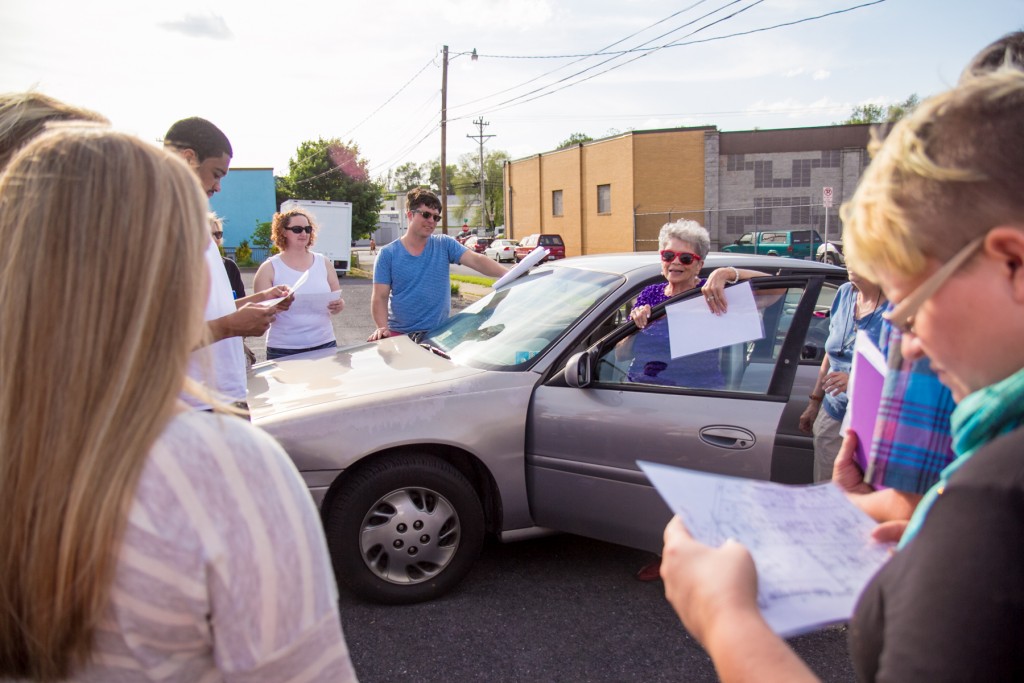Doris Harper Allen, 88, greeted a group of Eastern Mennonite University (EMU) students in the parking lot of Rose’s in Harrisonburg, the former heart of Newtown. She quickly passed out laminated maps of what is now known as the Northeast neighborhood. And then Allen flashed a vibrant smile from beneath her bright red sunglasses.
“You can ask me questions later,” she called as she climbed into her friend Robin Lyttle’s car. “Let’s go!”
Allen, who last year published a memoir “The Way It Was, Not the Way It Is” about her experiences in the Newtown area during the 1930s and ’40s, spent the afternoon and evening with 28 students teaching, sharing and interpreting African American history, culture and experience.
This was the beginning of a 2015 article about EMU’s local context cross-cultural experience. Doris Harper Allen, who died March 4, 2021, was a major contributor to that experience. She helped orient students in that class to Harrisonburg’s racial history through her memoir “The Way It Was, Not the Way It Is” (self-published, 2015), used as a course reading.
“Dr. Allen was also a guide of educational learning tours for EMU students collaborating with community and church leaders in the historic Northeast Neighborhood of Harrisonburg,” said Professor Deanna Durham, who with her husband Byron Peachey, now academic advocacy advisor, co-taught the local context cross cultural for several summers.
“I loved the enthusiasm and seriousness Dr. Allen shared with our students,” Durham said. “She wanted them to understand her own history both the immense joy and pride she has for this community and the deep harms caused by others. We left our time with her challenged and delighted!”
Allen, who received an honorary degree during JMU’s 2019 commencement, was born in Harrisonburg’s Northeast neighborhood on East Effinger Street in 1927, according to her online biography. Barred from attending James Madison University, then Madison College, due to racial segregation, she worked as a cook for Madison President G. Tyler Miller before enrolling at Marshall University in the early 1970s. In West Virginia, she worked as a teacher before returning to Harrisonburg, where she became involved in her native neighborhood’s revitalization efforts.
“It is with profound sorrow, we share the passing of our oldest trailblazer,” the NAACP said in a statement posted to its Facebook page late Friday. “She left a profound legacy within the city.”
That legacy was recognized last month when James Madison University named a building on campus after her.
Harper published a second memoir, “Jim Crow in the ‘30s, 40s, 50s and 60s: What was life really like in Harrisonburg and Rockingham County under the Jim Crow laws?” She gives a 12-minute interview on her most recent book.
Read and watch tributes from the Daily News-Record and WHSV-TV.
